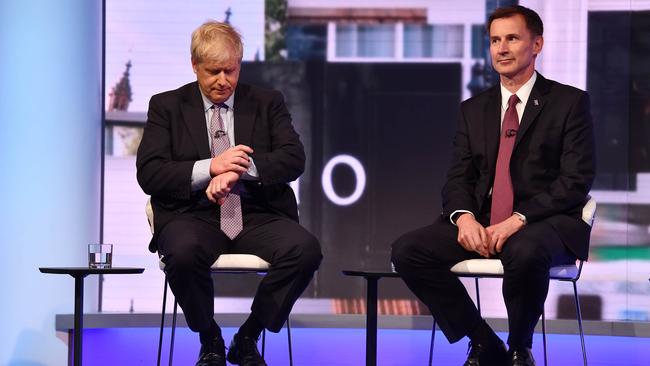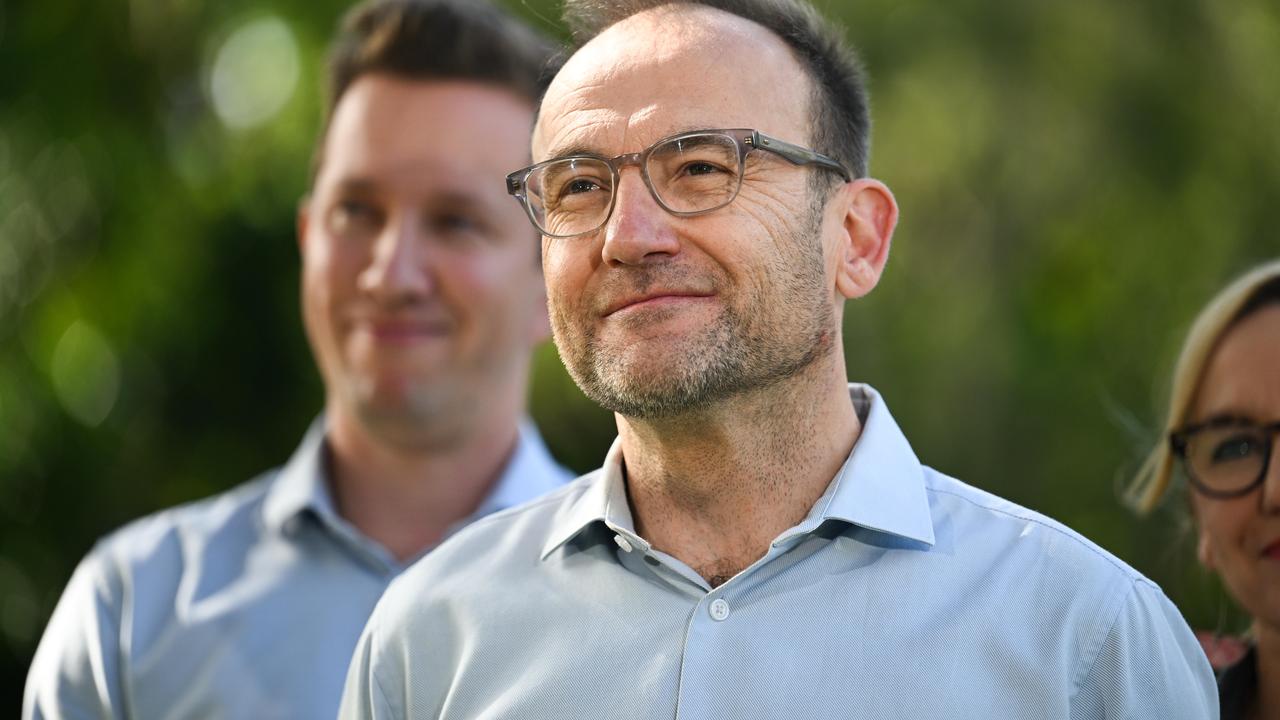
There are episodes of delirious entertainment when marvellous characters prance on stage to clown and preen and splutter and absorb. But these alternate with stretches of boredom so acute as to be excruciating.
It is as near as Britain has ever got to a US presidential primary. As much as anything else in this weird era in British politics, when the Brexit saga itself rolls on like the Eagles anthem — you can check out any time you like but you can never leave — the Tory leadership contest demonstrates the extreme fluidity of all Western politics today.
Take US primaries. In the long Republican primaries that led to Mitt Romney challenging Barack Obama in 2012, the primaries themselves were seen as damaging to the Republicans, with all the candidates taking chunks out of each other and demonstrating to voters each others’ dreadful shortcomings.
Even worse seemed to be the Republican primaries in the 2016 presidential cycle. All the presumed heavyweights — Jeb Bush, Ted Cruz, Marco Rubio — collapsed under their own weight, massively assisted by Donald Trump, disrupter-in-chief.
How the Democrats chortled. The Republicans had blown each other to smithereens and ended up with the obviously unelectable Trump as their candidate. The coronation of Hillary Clinton was a little disturbed by Bernie Sanders, but not too much. It was orderly, serene, becoming, compared with the Republican mud wrestle.
But lo and behold — Clinton got rolled. And Trump could well get re-elected for a second term. In the British context, after David Cameron lost the Brexit referendum in 2016 and resigned, the Conservatives were worried what an open leadership contest might do to them. All the alternative leadership candidates withdrew and Theresa May was elevated without contest, controversy or, importantly, scrutiny. And she turned out to be the worst prime minister in memory.
Electorates do value stability but in Australia leadership instability has not always led to electoral failure. Choosing the right leader is the most important thing. Bob Hawke decapitated Bill Hayden’s leadership the very day an election was called, then won the election handsomely. Paul Keating assassinated (metaphorically) Hawke and won the unwinnable election in 1993. John Howard dispatched Alexander Downer and won a huge landslide in 1996. Kevin Rudd knifed Kim Beazley and won a big victory. Malcolm Turnbull toppled Tony Abbott and won an election. Scott Morrison replaced Turnbull and defied all the odds to win a miracle third term and increase the Coalition’s majority.
So stability can be an asset, and it can be a limitation too.
No one could accuse the British Tories of excessive stability. There have been so many ministerial resignations in May’s doleful, chaotic reign that the once significant status, former cabinet minister, now describes every other busker in the street outside Westminster.
It’s tempting to say, nonetheless, that the campaign will damage its leading participants a bit. The ridiculous candidates — or that is to say, the candidates who never had any chance at all — nonetheless were perfectly rational in deciding to run. Just declaring your candidacy meant that you got at least a whole day, sometimes a couple of days, of national media interviews in a culture where the royals are all over the media every day and very few politicians have any national profile at all.
Among the so-called credible candidates the early entertainment was provided by Michael Gove. I met him once and he struck me as smart and focused. But it transpires that 20 years ago he was a social cocaine user.
Mostly, leadership candidates are allowed a wide latitude in youthful indiscretions. But sadly for Gove this cocaine use occurred when he was in his 30s and a significant journalist who wrote, among other things, about the hypocrisy and destructiveness of social drug use by middle-class types.
And remember, this is a Conservative Party leadership contest. The initial horde of candidates, like a herd of wildebeest careening through the Serengeti, were whittled down by a series of votes by Conservative MPs. At least one candidate is eliminated at each vote of MPs. When they are down to two, later this week, these will then go to the 160,000-odd rank-and-file members of the Conservative Party for them to vote on over a month’s campaigning.
The campaign has produced its share of surprises. One was the remarkably weak performance of the Home Secretary, Sajid Javid. Saj, as he’s called, is the son of a Pakistani immigrant who came to Britain with a single pound in his pocket, though that sounds an apocryphal amount even for a Pakistani family budget. Saj did brilliantly at school and university, went into business where he was a great success, entered politics a decade ago and is a senior cabinet minister. Britain should be proud of him and proud of itself for offering this kind of opportunity.
So Saj is undoubtedly a good fellow. But his delivery is so stilted and wooden, to mix the metaphors, that he cannot make any usable capital out of his backstory. Saj looks good on paper, but never quite lives up to potential on match day.
The eye-catching performer in the early Conservative primaries was the highly eccentric Rory Stewart. He ran as the anti-Boris. And although he claimed to be committed to Britain honouring the Brexit referendum, he spoke only of the dire, terrible consequences of any Brexit that had any substance. He’s also against cutting taxes in any circumstances. And he’s greener than Kermit the Frog.
As a result, though, he started out as the joke candidate, he gradually won votes from three sources: diehard Remainers, those who think the Conservatives should move much further to the left, and, most important of all, Conservative MPs who hate Boris Johnson.
This is one of the extreme oddities of placing the early stages of a party primary within the normal dynamics of parliamentary politics. Parliamentary colleagues who fall out, especially over leadership, often end up hating each other, like family members sundered forever by a dispute over a will. The Conservative contest resembles the Republican primaries also because the media is so utterly hostile to Brexit, and the Conservatives generally, and therefore hostile to all the leadership candidates except Stewart. So it did everything it could to assist Stewart. And the on-air British broadcasters are even more determined that they should answer their own questions, and prevent politicians from saying anything they don’t approve of, than even the worst of that tendency in our own ABC.
Because the contest will finally be between the two last standing, and because Johnson is assumed to be one of the two, the real contest quickly became for the second spot and all kinds of tactical campaigning followed. The TV debate with the five remaining candidates on Tuesday night British time was cacophonous and almost idiotic, with no one allowed to finish a thought, as the BBC presenter constantly interjected and marked candidates up and down according to her own political preferences.
Hard to say, finally, whether this whole show does the Conservatives any good or harm. It’s certainly an irrational way to run politics. But I suppose rationality can be overrated.




Being in London watching the leadership contest for the British Conservative Party wend its tortuous way to a conclusion at the end of next month is comparable to reading Marcel Proust’s Remembrance of Things Past.